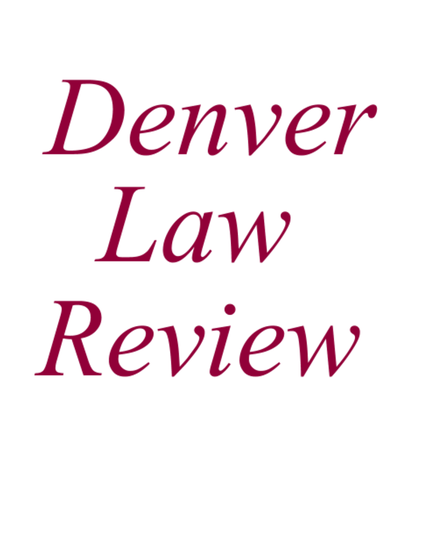
Article
Out From the Shadows: Title IX, University Ombuds, and the Reporting of Campus Sexual Misconduct
Denver Law Review
(2016)
Abstract
Confidentiality is a challenge and an opportunity for university administrators in charge of resolving campus sexual misconduct. As an opportunity, confidentiality can be used to build trust, provide self-determination, and ensure privacy for survivors and alleged perpetrators. Confidentiality also presents significant challenges because it may prevent people from the reporting of all known instances of sexual misconduct. Without knowing about an instance of sexual misconduct, university officials are unable to investigate and remedy problems, potentially exposing the institution to liability. Title IX Coordinators oversee a compliance regime that mandates reporting but in practice results in widespread underreporting of campus sexual misconduct. Both formal and informal reporting mechanisms are necessary to manage sexual misconduct disputes, but currently neither Ombuds nor Title IX Coordinators adhere to their respective archetypes. The result is increased liability risk to the institution, fewer procedural choices for survivors and alleged perpetrators, and processes that lack legitimacy. In order to fulfill the mandates of Title IX, universities must implement and utilize organizational Ombuds offices that adhere to the International Ombudsman Association’s (IOA) standards of practice. Non-conforming Ombuds must be mandatory reporters, as only a true alternative reporting mechanism can overcome the current ineffectiveness of the formal complaint system.
Disciplines
Publication Date
2016
Citation Information
Brian A. Pappas. "Out From the Shadows: Title IX, University Ombuds, and the Reporting of Campus Sexual Misconduct" Denver Law Review Vol. 94 Iss. 1 (2016) p. 71 - 144 ISSN: 24696471 Available at: http://works.bepress.com/brian-pappas/3/
